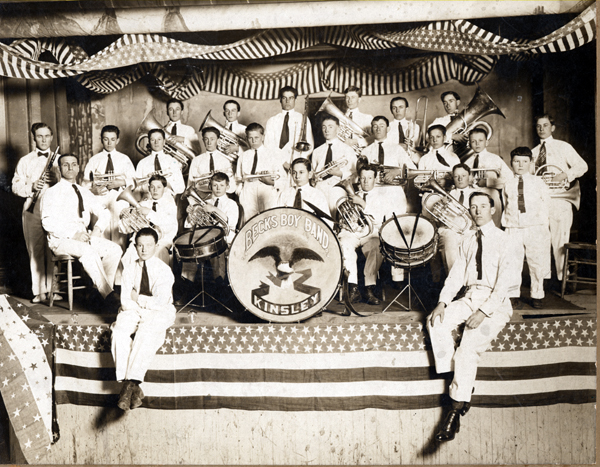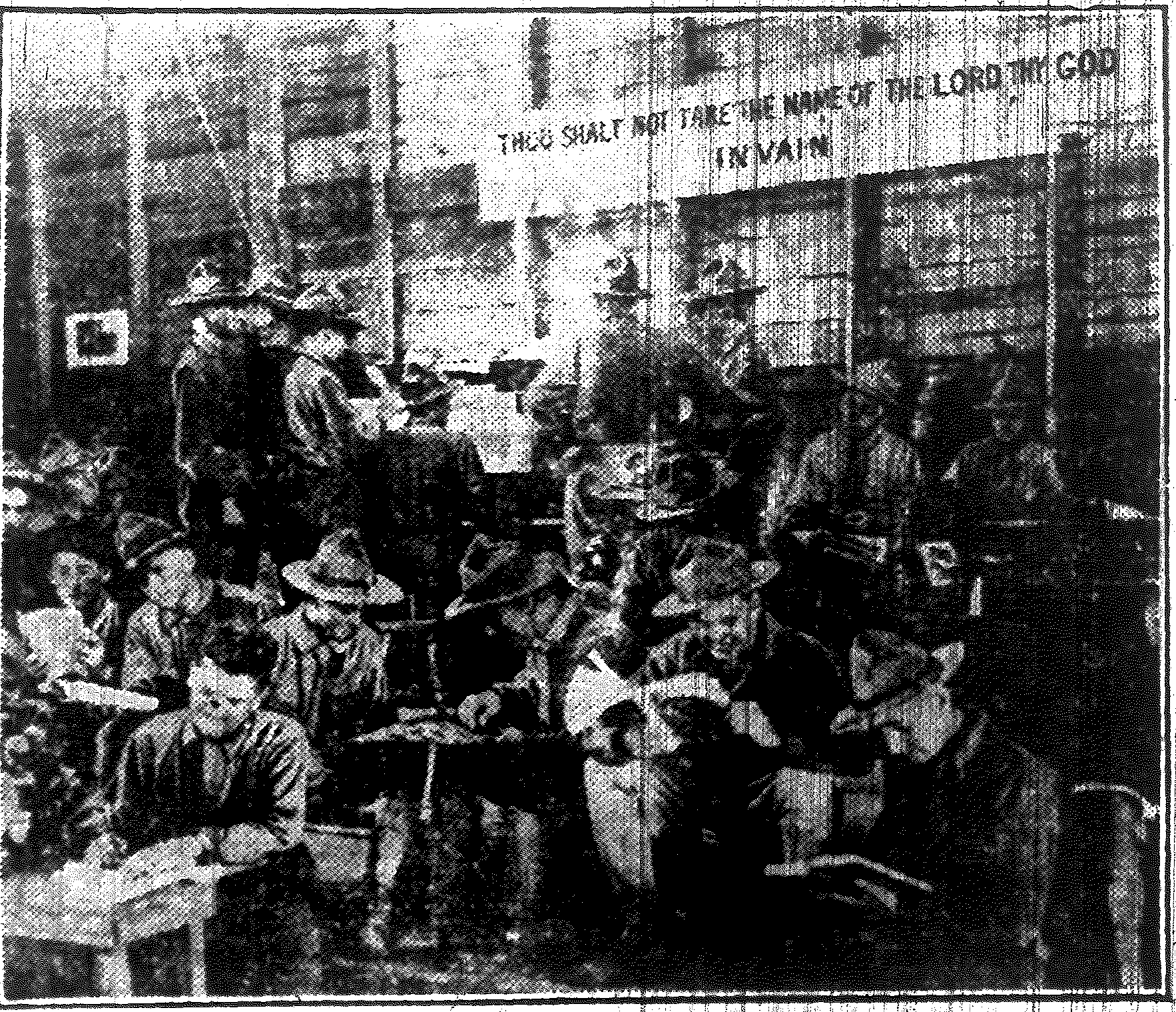After work and drill was done at Fort Funston, the evenings could get long and lonely if it were not for the Y.M.C.A. The important services the Y.M.C.A provided in World War I were completely unknown to me before I started reading these old newspapers. Raymond Smith praised the Y.M.C.A. in the September letter mentioned previously.
“The Y.M.C.A. furnished all kinds of good amusements free to the soldiers. I enjoyed listening to the Swiss Yoddlers last night. The boys from all the other states come to our Y.M.C.A. and we visit theirs. So that way we get good talent for our Bible study classes and singers…. I am beginning to like it here. We work about eight hours. Wash our clothes while we have time and spend our spare time at the Y.M.C.A. or visiting the boys from other places. The boys are all friendly and out for a good time when not on duty. There is not anything bad sold here but cigarettes and they are here in plenty. All other evil things must be sought elsewhere.
I previously had read an article in the June 14, 1917 issue of the Kinsley Graphic which announced: “On Friday night there will be a band concert at the northside park. Beck’s Boys’ Band will play and there will be speeches made in the interest of the Y.M.C.A. movement which is being agitated over the country. This movement is for the cleaning up of the camps where the soldiers are and to provide for the establishment of clean recreation.”
 Becks Boys’ Band formed by Lester Beck in 1913
Becks Boys’ Band formed by Lester Beck in 1913
The June 21st paper made another call to meet this goal.
The work of raising a million dollars to promote Y.M.C.A. work is being actively pushed in this state and we are trying to raise our apportionment, $315 for this county. A little more than half this amount has been raised and the balance should be contributed at once. This is a matter that will commend itself to every person who thinks of the temptations and pitfalls that surround our boys in the camps. The government is doing its part, but there is a part of this work that has been assumed by the Y.M.C.A. that is very important. This organization aims to supply reading rooms and clean entertainment for the men in the camps and so assist in reducing the chance for error to the minimum. Every parent who has a son in the camps will feel the appeal in this movement, and should call on their neighbors to contribute their mite to the cause.”
Five months later, Edwards County was asked to raise $2,500 to provide Y.M.C.A. rooms overseas. Individuals and community groups all took up the cause. An offering was taken up at a special patriotic service at the Nettleton Church. There was singing of national hymns, an address by the minister, and pieces performed by the children. (Nettleton was a small town located between Kinsley and Garfield on the Arkansas River.)
The editor of the Graphic in the November 8 issue quoted from a letter Albert Wilson wrote from Great Lakes training camp. “The Y.M.C.A. is a God send to us, and I do not know what we could do without it. Every soldier who writes home from where there is one, speaks of the good it does.”
Later, on November 19 he wrote again, “I was glad to hear that Edwards County doubled its share of the Y.M.C.A. fund. If the Ys went out of commission, I don’t know what we would do, and I suppose that the boys over there need them even more than we do. There is an entertainment of some kind here at the ‘Y’ nearly every night. Here we buy stamps, get paper and envelopes, send money orders, and express packages. If you want anything outside the station one of the men in charge will see that you get it.”
 Good Reading and Correspondence Facilities in Y.M.C.A. Building. (Kinsley Graphic, 11-8-1917)
Good Reading and Correspondence Facilities in Y.M.C.A. Building. (Kinsley Graphic, 11-8-1917)
Throughout World War I, the YMCA provided morale and welfare services for the military. By war’s end, the YMCA, through the United War Work Council, had operated 1,500 canteens in the United States and France; set up 4,000 YMCA huts for recreation and religious services; and raised more than $235 million—equivalent to $4.3 billion today—for relief work.
